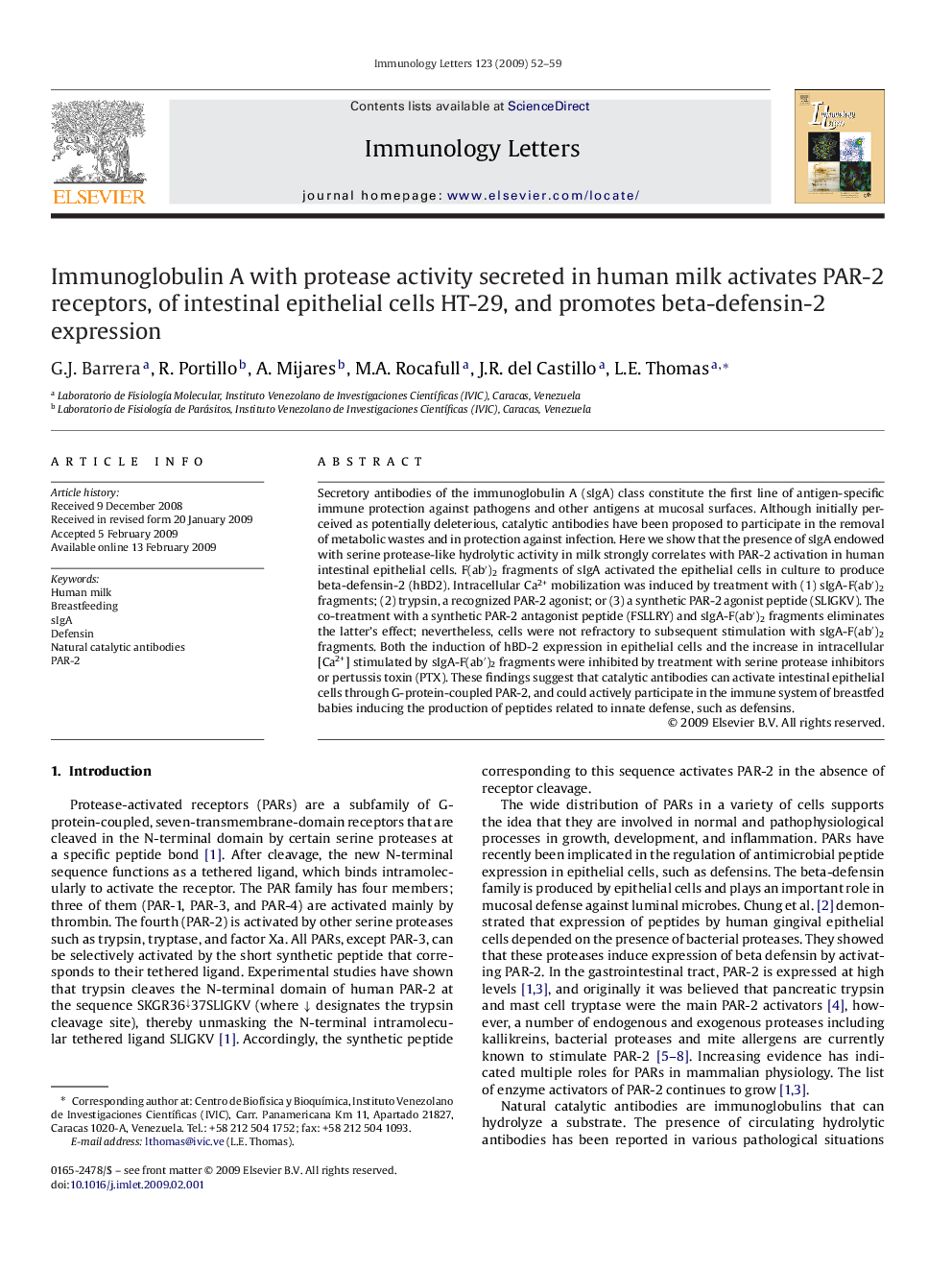| Article ID | Journal | Published Year | Pages | File Type |
|---|---|---|---|---|
| 3355939 | Immunology Letters | 2009 | 8 Pages |
Abstract
Secretory antibodies of the immunoglobulin A (sIgA) class constitute the first line of antigen-specific immune protection against pathogens and other antigens at mucosal surfaces. Although initially perceived as potentially deleterious, catalytic antibodies have been proposed to participate in the removal of metabolic wastes and in protection against infection. Here we show that the presence of sIgA endowed with serine protease-like hydrolytic activity in milk strongly correlates with PAR-2 activation in human intestinal epithelial cells. F(abâ²)2 fragments of sIgA activated the epithelial cells in culture to produce beta-defensin-2 (hBD2). Intracellular Ca2+ mobilization was induced by treatment with (1) sIgA-F(abâ²)2 fragments; (2) trypsin, a recognized PAR-2 agonist; or (3) a synthetic PAR-2 agonist peptide (SLIGKV). The co-treatment with a synthetic PAR-2 antagonist peptide (FSLLRY) and sIgA-F(abâ²)2 fragments eliminates the latter's effect; nevertheless, cells were not refractory to subsequent stimulation with sIgA-F(abâ²)2 fragments. Both the induction of hBD-2 expression in epithelial cells and the increase in intracellular [Ca2+] stimulated by sIgA-F(abâ²)2 fragments were inhibited by treatment with serine protease inhibitors or pertussis toxin (PTX). These findings suggest that catalytic antibodies can activate intestinal epithelial cells through G-protein-coupled PAR-2, and could actively participate in the immune system of breastfed babies inducing the production of peptides related to innate defense, such as defensins.
Related Topics
Life Sciences
Immunology and Microbiology
Immunology
Authors
G.J. Barrera, R. Portillo, A. Mijares, M.A. Rocafull, J.R. del Castillo, L.E. Thomas,
